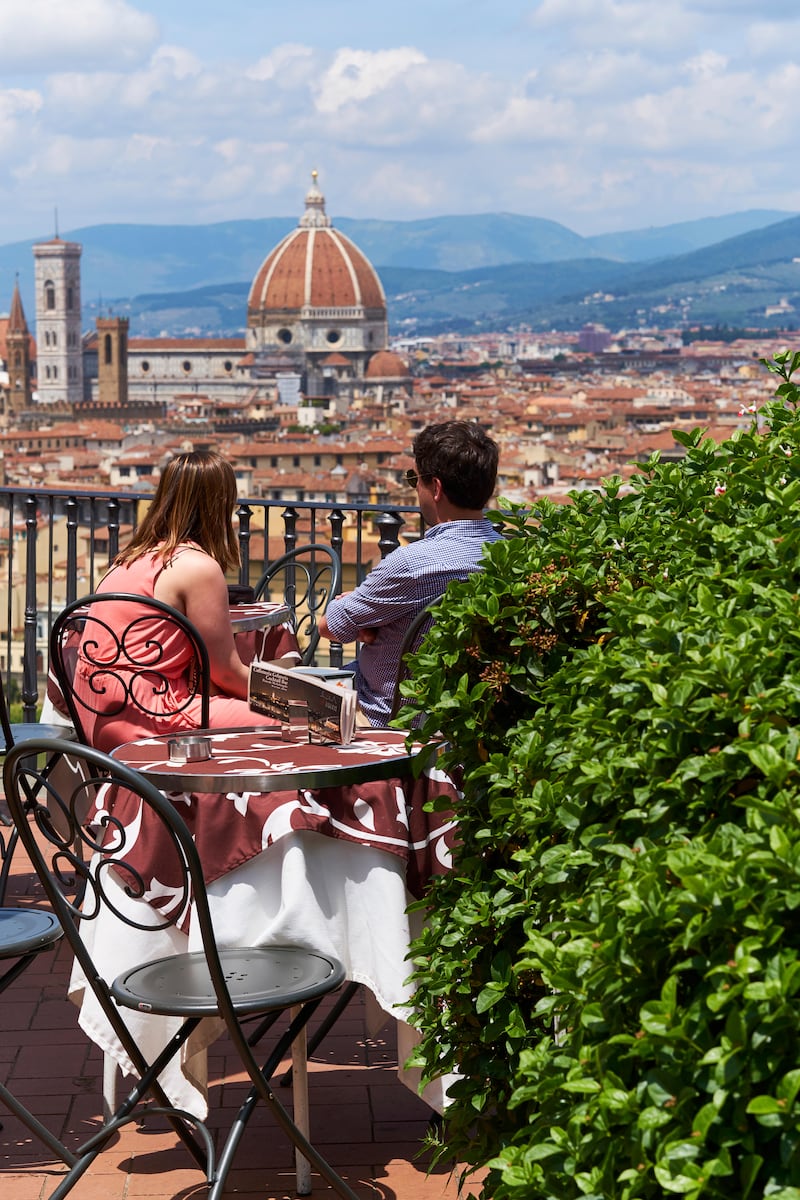Booking a holiday is a sure-fire way to alleviate the dreaded January Blues.
Getting a city break or sunny escape in the diary – even if it’s still a little way off right now – gives you something to look forward to. And if it involves a stay in a swanky hotel, all the better.
Amid continued competition from holiday homes, rentals and resorts, the hotel industry has had to adapt to entice consumers who are spoilt for choice, while holidaymakers’ tastes are changing in response to lifestyle and financial factors.
We asked travel experts to talk through the hotel trends that will be everywhere in 2024…
Bleisure trips

With remote working now the norm for many, holidaymakers are making the most of their annual leave with “bleisure” trips combining business and leisure, meaning hotels with co-working spaces are increasingly in demand.
“With 81% of business travellers estimated to engage in bleisure travel, we can expect this to be a key reason why many guests will come through the door in 2024,” says Rachael Kiss, marketing manager at Alliance Online.
Jessica Gillingham, chief executive of Abode Worldwide, says more travellers will opt for properties with in-room workspaces: “These units will fare better in competition with Airbnb-style accommodations that consistently show a growth in demand as consumers embrace more ‘bleisure travel’, remote working and longer stays.”
In response, hotel operators will seek to position themselves as leaders in the bleisure market.
“In 2024, we envisage more property and hotel investors will lean into the trend of repurposing buildings as a way of unlocking potential growth in the sector without the need for extensive investment,” says Lionel Benjamin, co-founder of AGO Hotels. “It is expected investors will take up these new schemes this year, and the concept of city resorts, which provide co-working hubs and wellbeing centres, will change the way people interact with cities.”
Sporting activities
With the Paris Olympics and Paralympics and Euro 2024 football on the way, this year is going to be a bumper one for sports fan. As well as travellers booking hotels close to sporting venues, guests will want to get active during their stay.
“We expect to see an uplift in guests and members seeking to try new activities as a result,” says Josh Abbott, marketing manager at Foxhills Club & Resort in Surrey.
The property picked up on the trend for racket sports that exploded in the US last year, and are growing on this side of the pond too: “We have invested in pickleball and padel tennis courts, which will open here at Foxhills early in 2024.”
Digitised experiences
The use of artificial intelligence is spreading swiftly across countless sectors, including hotels.
“Guests are now expecting there to be an online booking option, using chatbots for further information, automated confirmations, mobile check-ins, a virtual concierge and a keyless entry to rooms,” says Kiss.
She tells property owners: “Now is the time to invest in tools that streamline and enhance the consumer experience. However, it’s important to maintain some sort of human touch to make sure personal connection isn’t lost completely.”
As the technology becomes more advanced, some travellers will even let AI decide their destination.
“Gen Z and millennials are most likely to trust an AI travel planner to book a trip for them, including accommodation, based purely on what they say they are looking for,” says Ryan Pearson, regional manager for Booking.com.
Shorter stays

As the cost-of-living crisis continues, some travellers will prioritise several affordable short-haul trips throughout the year, instead of one big annual holiday.
“With the number of trips taken in the year per person set to rise, we’d naturally expect the duration of the visits to fall – which is better suited to hotel accommodation over rented property,” says Tim Hentschel, chief executive and co-founder of HotelPlanner.
“The appetite for rented accommodation has risen drastically over the past decade,” he notes – but for short stays, many guests want “regular housekeeping, amenities, bars and restaurants as well as seamless check-in and check-out processes”, he adds.
Conscious spending
Another side effect of the cost-of-living crisis: consumers want more bang for their buck when choosing a hotel.
“Even in the luxury market, travellers are more conscious of spend, yet they seek more immersive and personalised experiences,” says Dan Rose-Bristow, owner of five-star The Torridon resort in the Scottish Highlands.
As a result, more high-end hotels will start offering all-inclusive packages: “With accommodation, all meals and unlimited drinks included, as well as selected indoor and outdoor activities, we feel this is the perfect answer for our guests.”


